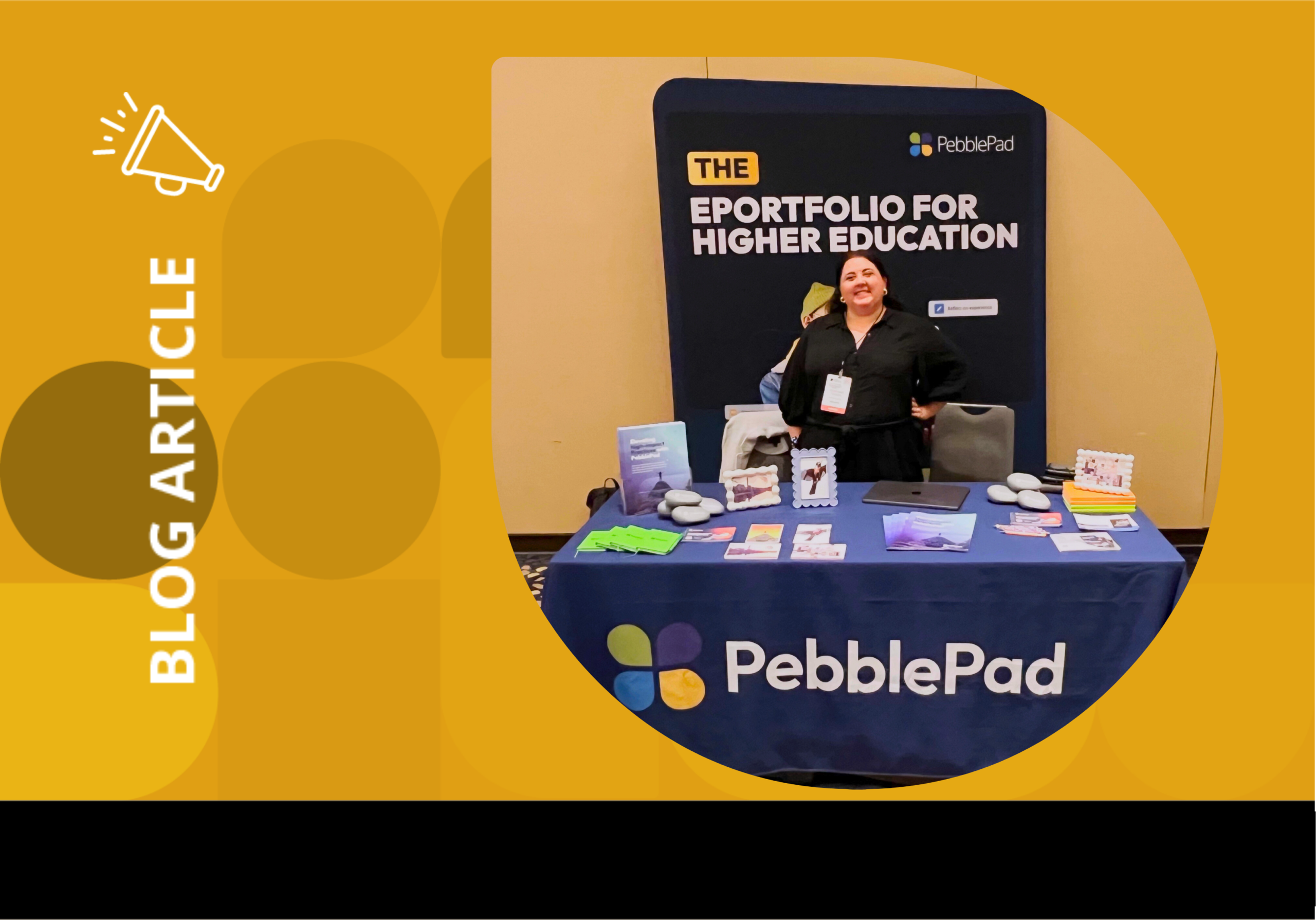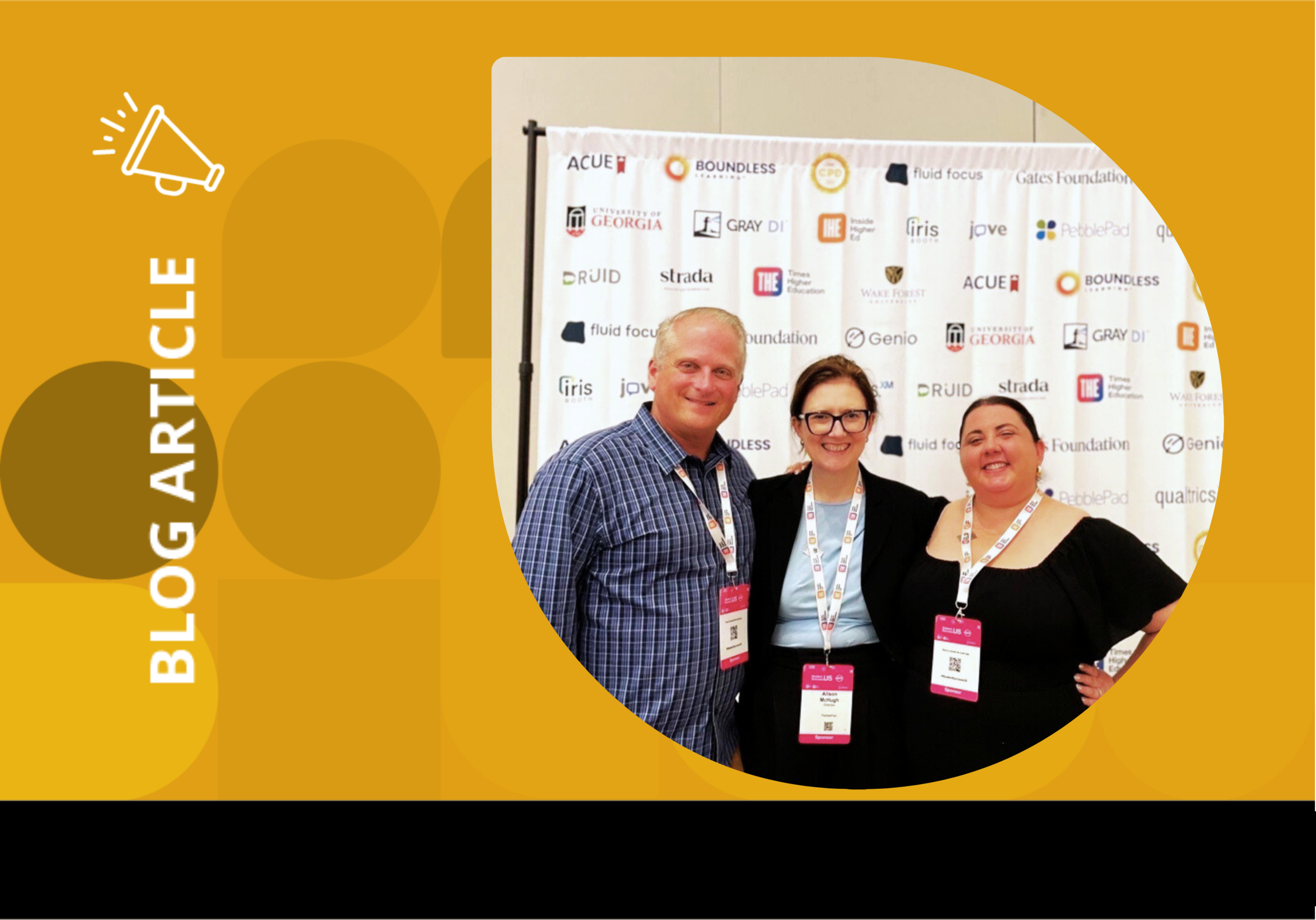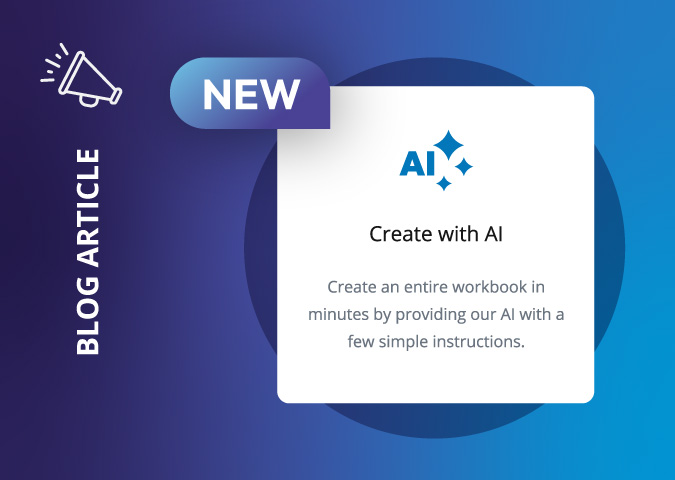Senior Lecturer in Anatomy and Physiology, Dr Nicola Aberdein, reveals how PebblePad Workbooks have had a profound impact on delivering successful assessments for Degree Apprenticeships at Sheffield Hallam University.
The university is approaching its ninth year of running the Cardiovascular and Respiratory Sleep Science Degree Apprenticeship (DA) with students on the course working within the NHS as Healthcare Scientists alongside their full-time degree commitments. They regularly interact with work-based supervisors as well as clinical and academic advisors to collect and evidence the required knowledge, skills and behaviours (KSBs) associated with the Degree Apprenticeship Standards.
This complex relationship requires a sophisticated Workbook to capture the required elements and track student progress along the way. The result is a multi-module assessment workbook, which integrates ePortfolio pages, assessor-only tracking rubrics and guidance pages. Importantly, it can be accessed and assessed by all stakeholders in real-time – a vital aspect of the DA tripartite agreement.
Transformative results
Over the past eight years, this ePortfolio Workbook has evolved into the beautiful beast it is today, containing at its peak seven workbooks, 10 worksheets, 14 ePortfolio pages, five assessor-only tracking rubrics, five student tracker rubrics, and innumerable evidence blocks. The benefits of this approach can be broken down by stakeholder:
Student experience
Our students attend university on a Block Week rota – 3-5 times per year – and get hands-on training in PebblePad on their first day on campus. The Workbook ePortfolio has been designed to accommodate assessment tasks from two-to-three independent modules depending on the year of study. Students therefore get used to a similar mode of assessment across multiple modules and only need to interact with a minimum number of electronic platforms.
This improves student experience and simplifies assessment communication as each module is assessed in one place using the same layout, format and expectations. Such a unified approach enables students to learn one process and repeat, leaving them to focus on the competency evidence required for the KSBs.
So why did we integrate ePortfolio Pages in the Workbook? Simple – we found that students like to show off their individuality! The capabilities of the ePortfolio pages mean, although the requirements of evidence were the same for each student, the originality and flare used to display evidence are quantifiably different with students able to be creative and dynamic with the layout and design of each evidence page.
Staff experience
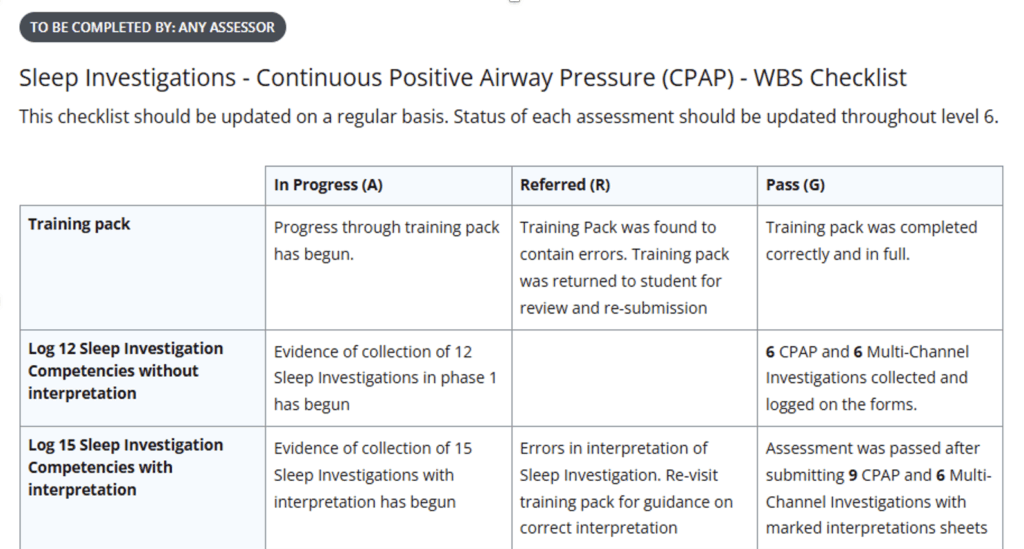
Our Degree Apprenticeships could not run without the unwavering support of our NHS work-based supervisors and Sheffield Hallam Clinical team. They interact with students on a daily/weekly/monthly basis while running departments/clinics in a high-pressure NHS environment. For this reason, we needed to create an assessment tool that would not double their workloads.
The assessor-only rubrics were applied to ensure clinical evidence could be verified in the workplace and time/date stamped easily within the ePortfolio Workbook. Our work-based supervisors and clinical team can also track progress easily and for multiple students in one place. The integration of ePortfolio Pages has also meant they can view competency evidence quickly without having to open numerous evidence blocks. This is crucial for clinical disciplines as the majority of evidence is visual-based printouts/traces/images and interpretation sheets.
Finally, we could include all documentation associated with each clinical competency on a worksheet, which is un-editable by students, accessible by supervisors and includes guidance, assessment forms, feedback forms, reflections forms, and interpretation sheets.
Optimising assessment
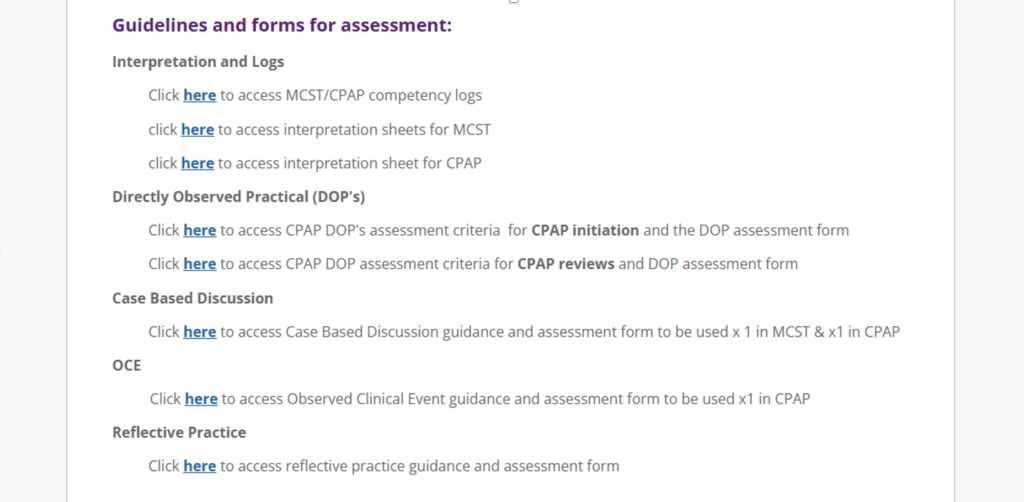
Overall, we have developed a multi-module Workbook ePortfolio that meets the needs of several assessment briefs in a demanding and multi-user environment.
Importantly, the feedback from staff and students has been overwhelmingly positive and, with the government’s most recent commitment to Degree Apprenticeships for 18–21-year-olds, we are excited to continue this journey.
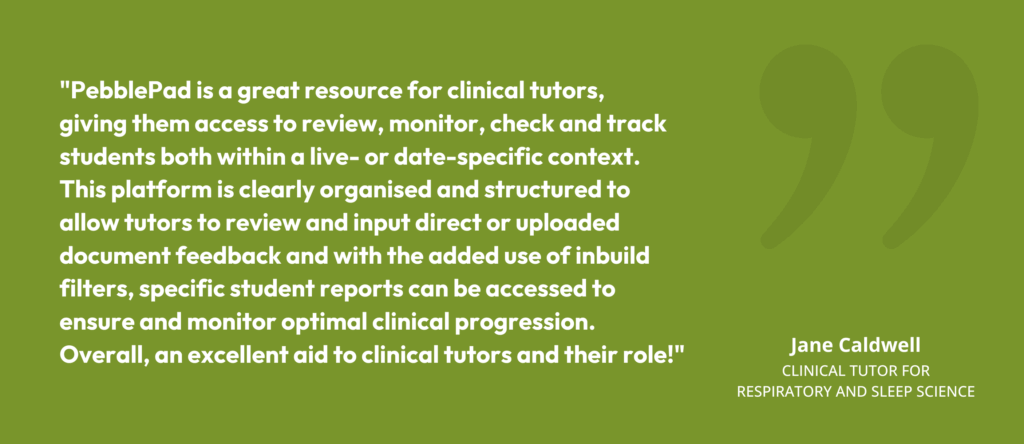
About the author

Dr Nicola Aberdein is a Senior Lecturer in Anatomy and Physiology at Sheffield Hallam University and has taught on the Cardiovascular and Respiratory Sleep Science Degree Apprenticeship for over eight years.


